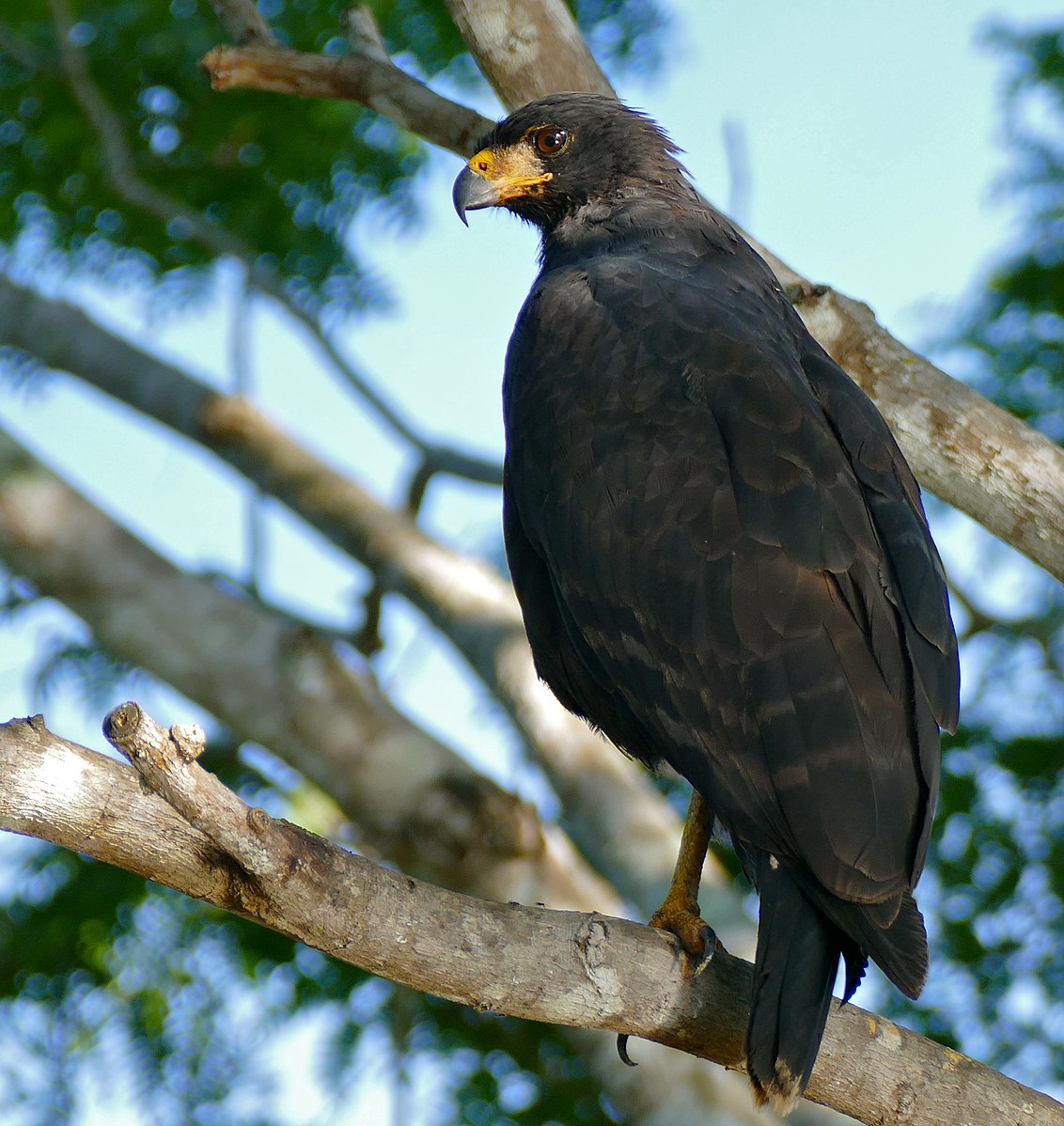Great black hawks (Buteogallus urubitinga) are powerful birds of prey known for their impressive beaks and talons. However, these majestic birds can sometimes break or damage their beaks, which can have serious consequences for their health and survival. In this blog post, we’ll explore the reasons why great black hawks may break their beaks and what can be done to help them.
Reasons Why Great Black Hawks Break Their Beaks
Injury
One of the primary reasons why great black hawks break their beaks is due to injury. These birds are skilled hunters that often swoop down from great heights to capture their prey. This high-speed hunting technique can put a lot of stress on their beaks, especially if they miss their target or if their prey puts up a struggle. Over time, this repeated stress can lead to cracks, chips, or even complete breaks in the beak.
Great black hawks may also sustain beak injuries during territorial disputes or aggressive encounters with other birds. These confrontations can result in direct trauma to the beak, causing it to break or become damaged.
Disease
Another reason why great black hawks may break their beaks is due to disease. Like all animals, birds can suffer from a variety of illnesses and infections that can affect the health of their beaks. For example, fungal or bacterial infections can weaken the structure of the beak, making it more susceptible to breaks and cracks.
Nutritional deficiencies can also play a role in beak health. A lack of essential nutrients, such as calcium, can make a bird’s beak more brittle and prone to breaking.
Wear and Tear
The rigors of a great black hawk’s predatory lifestyle can also lead to beak breaks and damage over time. These birds use their beaks to tear apart their prey, which can put a significant amount of stress on the beak. Additionally, they may use their beaks to break open the shells of hard-shelled prey, such as snails or clams, further contributing to wear and tear.
Consequences of a Broken Beak
 Image source: Great Black Hawk by Bernard DUPONT
Image source: Great Black Hawk by Bernard DUPONT
A broken beak can have serious consequences for a great black hawk’s health and survival. If the break is severe, it can make it difficult or impossible for the bird to eat, leading to starvation and death. Even minor breaks or cracks can impair a bird’s ability to hunt and feed effectively, putting its overall health at risk.
Caring for Great Black Hawks with Broken Beaks
If a great black hawk is found with a broken beak, it is important to seek veterinary care as soon as possible. Veterinarians may be able to splint or repair the beak, depending on the severity of the injury. In some cases, the bird may need to be placed in a rehabilitation facility to receive specialized care and monitoring.
It is also important for bird owners and wildlife enthusiasts to be vigilant in monitoring great black hawks and other birds of prey for signs of beak damage or disease. Early intervention can be crucial in helping these birds recover and maintain their health.
In conclusion, great black hawks can break their beaks for a variety of reasons, including injury, disease, and the demands of their predatory lifestyle. While a broken beak can be a serious issue, with proper care and treatment, many of these birds can recover and continue to thrive in the wild.
References:
- National Park Service. (2018-05-26). The Remarkable Adaptations of Birds to Their Environment. Retrieved from https://www.nps.gov/cabr/blogs/the-remarkable-adaptations-of-birds-to-their-environment.htm
- The Raptor Trust. (n.d.). Hawk Facts – The Raptor Trust. Retrieved from https://theraptortrust.org/bird-resources/bird-facts/hawk-facts/
- Scientific American. (2011-05-13). For the Birds: Best-Adapted Beaks. Retrieved from https://www.scientificamerican.com/article/best-adapted-beaks-bring-science-home/.


